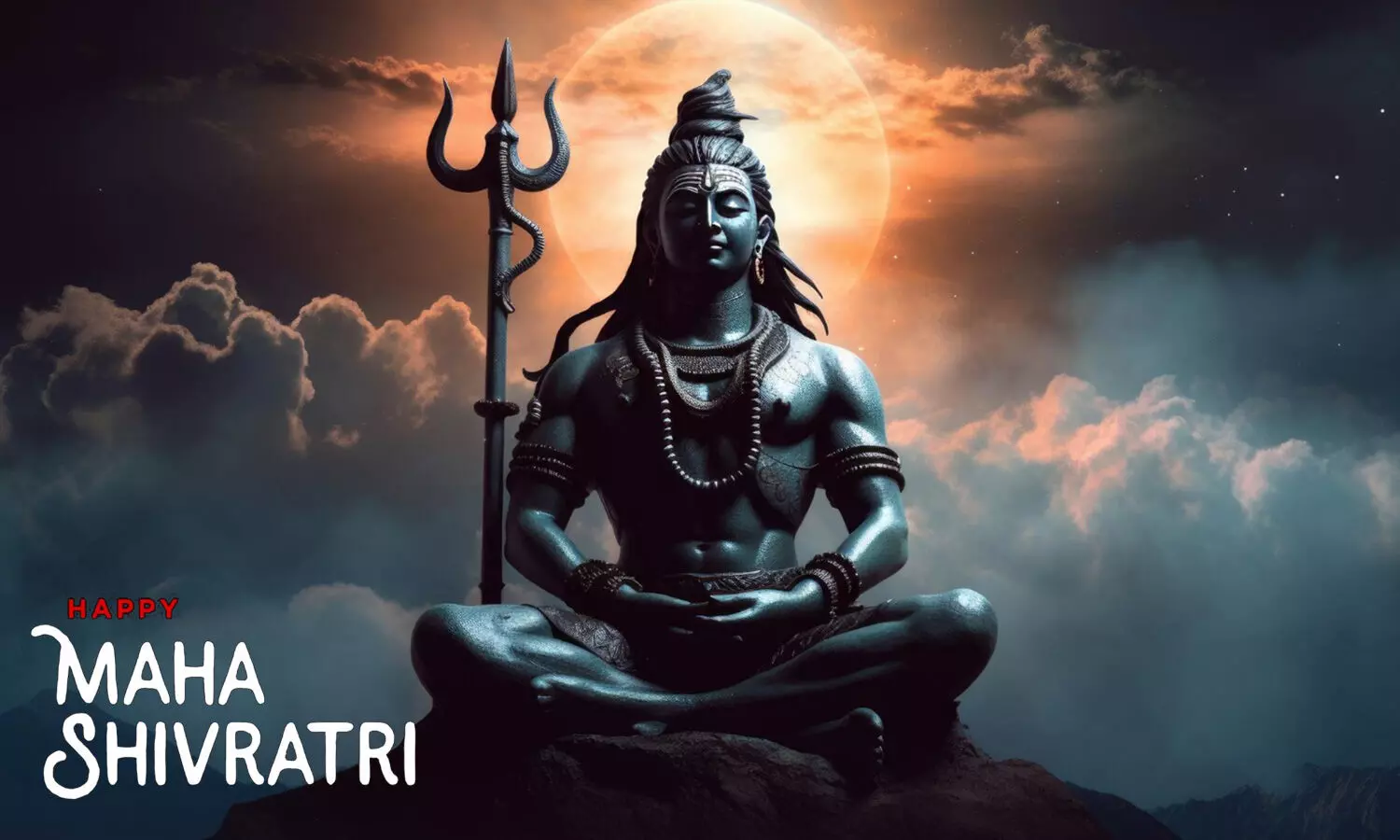Maha Shivaratri 2024: Traditions, Stories, and Meaning Beyond the Celebration
Maha Shivaratri, a major Hindu festival, celebrates the night of Lord Shiva. Two main stories are associated with it: Shiva's cosmic dance and marriage to Parvati, and him drinking poison from the churning of the ocean. Devotees observe fasts, prayers, and rituals to mark this night of devotion and introspection.
image for illustrative purpose

Maha Shivaratri has profound significance. It's the time when people celebrate and honour Lord Shiva, one of the main gods in Hinduism. Let’s explore why Maha Shivaratri is celebrated, what it means to people, and how they celebrate it.
The Story of Maha Shivaratri
Maha Shivaratri is a special day dedicated to Lord Shiva, the god of destruction and transformation. It falls on the 14th night of the waning moon in the Hindu month of Phalguna, usually in February or March. The word ‘Maha Shivaratri’ means ‘the Great Night of Shiva’ in Sanskrit.
The Legend of Shiva and Parvati
One of the stories behind Maha Shivaratri is about the marriage of Lord Shiva and Goddess Parvati. Parvati, also known as Shakti, was deeply in love with Shiva and wanted to marry him. Shiva, however, was a god who preferred solitude and meditation. But Parvati was determined to win his love. She prayed and meditated for years until Shiva finally accepted her love and agreed to marry her. Their wedding is celebrated as Maha Shivaratri, symbolising the union of two divine energies.
The Significance of Maha Shivaratri
Spiritual Importance
Maha Shivaratri holds great spiritual significance for Hindus. It's believed that on this day, the energy of Lord Shiva is especially powerful, making it an auspicious time for prayers, meditation, and spiritual practices. Many people observe fasts and spend the night in devotion to Lord Shiva, seeking his blessings for spiritual growth and enlightenment.
Cultural Significance
Maha Shivaratri is not just a religious festival; it's also a cultural event celebrated with enthusiasm and joy. People come together to sing bhajans (devotional songs), recite prayers, and perform traditional dances in honour of Lord Shiva. It's a time for communities to bond and celebrate their shared heritage.
Customs and Traditions
Fasting: Many Hindus observe strict fasts on Maha Shivaratri, abstaining from food and water for the entire day. Fasting is seen as a way to purify the body and mind and to show devotion to Lord Shiva.
Abhishekam: A common ritual performed on Maha Shivaratri is called Abhishekam, where devotees bathe the Shiva Lingam (a symbol representing Lord Shiva) with milk, yoghurt, honey, and water. This ritual symbolises purification and the offering of prayers to Lord Shiva.
Visiting Temples: Devotees visit Shiva temples on Maha Shivaratri to offer prayers and seek blessings. Special pujas (religious ceremonies) are conducted throughout the day, and devotees often stay up all night chanting prayers and singing hymns.
Maha Shivaratri is a special festival that holds deep meaning for Hindus around the world. It's a time to honour Lord Shiva, seek spiritual enlightenment, and celebrate cultural traditions. Whether through fasting, prayers, or joyful festivities, Maha Shivaratri brings people closer to their faith and to each other. As we celebrate this auspicious occasion, let us remember the teachings of Lord Shiva and strive to embody love, compassion, and unity in our lives.

